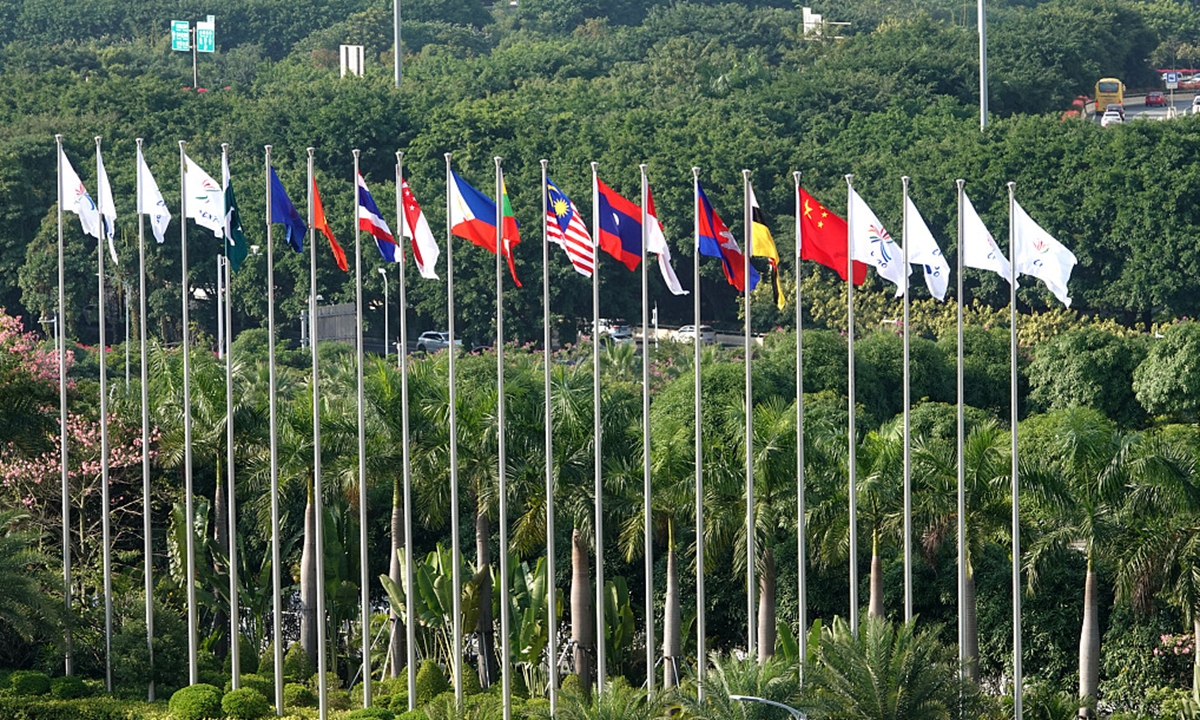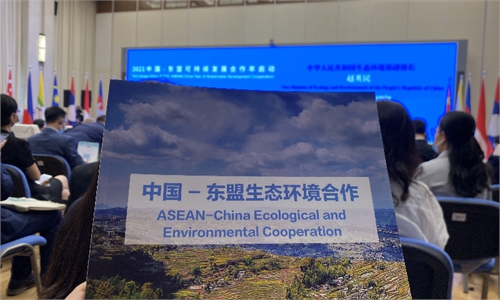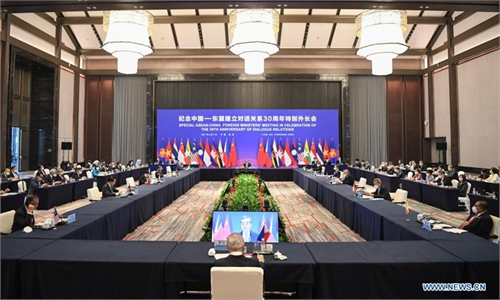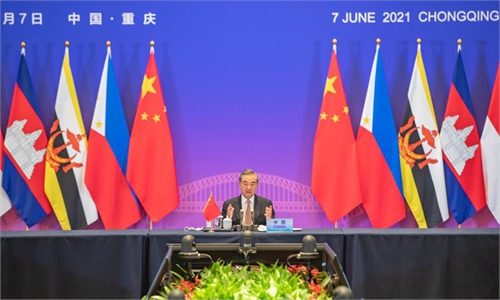
China-ASEAN Photo:VCG
The in-person meeting between foreign ministers of China and ASEAN countries was held in Chongqing on Monday to Tuesday. This is the first face-to-face foreign ministers' meeting between the two sides after the COVID-19 pandemic spread globally, reflecting the unusual degree of close development of China-ASEAN relations.ASEAN is a close neighbor of China. The Obama administration focused on this area when it was engaging in the Asia-Pacific rebalancing strategy. Over the past few years, the US has engaged in strategic containment of China and Southeast Asia has become a focus point. However, the US' gains have been very limited. Its investment of power simply cannot keep up with its goal of roping ASEAN in to help it oppose China together.
The US' biggest influence in Southeast Asia is security, and its main lever is military presence. The Philippines and Thailand is the US' military ally. The US has military bases in Singapore, and its warships have constantly visited the South China Sea. Washington has taken advantage of some ASEAN countries' mindset - hoping that the US can balance China's rise in the region - and has tried to elevate its role in Southeast Asia to the dominant position and make regional countries follow suit. But facts have proven that this is complete fantasy.
ASEAN as a whole is unwilling to choose sides between China and the US. Even Singapore, which has the most stable relations with the US, firmly rejects such a regional prospect. These countries hope to maintain a balanced relationship with China and the US, regarding this as the way for ASEAN to survive. It is worth noting that ASEAN countries generally maintain diplomatic independence, and their ability to formulate foreign policies on their own is even stronger than some strong US allies in the Asia-Pacific region, including Japan and Australia.
An important reason is: China does not pose a threat to ASEAN countries as the US has hyped. Although China has territorial disputes with some ASEAN countries, all parties have real willingness to manage their differences. China's economic and trade cooperation with ASEAN countries has expanded rapidly, continuously reshaping China's relations with those countries and the geopolitical and geo-economic outlook of the entire region.
China is the largest trading partner of all ASEAN members, and total trade between China and ASEAN is about twice that of the US and ASEAN. Although the US has a large investment stock in ASEAN, China's investment in ASEAN has increased rapidly in recent years and is about to catch up with that of the US.
Only when there is a real and urgent external threat will ASEAN countries place security cooperation in a dominant position, to highlight its zero-sum and exclusivity. However, the current situation in the region is totally different. Peaceful development is of greater practical significance to the vast majority of countries in the region. Economic and trade cooperation from China has penetrated all aspects of Southeast Asian society. In 2019, before the epidemic broke out, there were nearly 4,500 flights a week between China and ASEAN countries, and more than 65 million people traveled between China and ASEAN countries the same year.
As long as there is no military friction between China and the US in the South China Sea, China will be able to prevent disputes in the area from escalating into a war. Relations between China and ASEAN countries have developed naturally and gone with the trend of the times. The US, on the other hand, has resorted to intrigue and incited countries in the region to act as its strategic pawns. Its tactics are very exhausting.
The US needs to devote a lot of resources to Southeast Asia, but it wants to win the loyalty of ASEAN easily without any payout. China advocates equal and mutually beneficial cooperation, and takes the common benefits of China and ASEAN countries as the energy to advance our relations. To be precise, the US has chosen a race in Southeast Asia where it is bound to lose.
The failure of the US to deal with Southeast Asia opens a big hole in its strategy to contain China, and the logic of its failure here is universal. Countries with true diplomatic autonomy will not run desperately with the US, but will choose some kind of diplomatic balance between China and the US. Containment of China is bound to be Washington's strategic fantasy.



